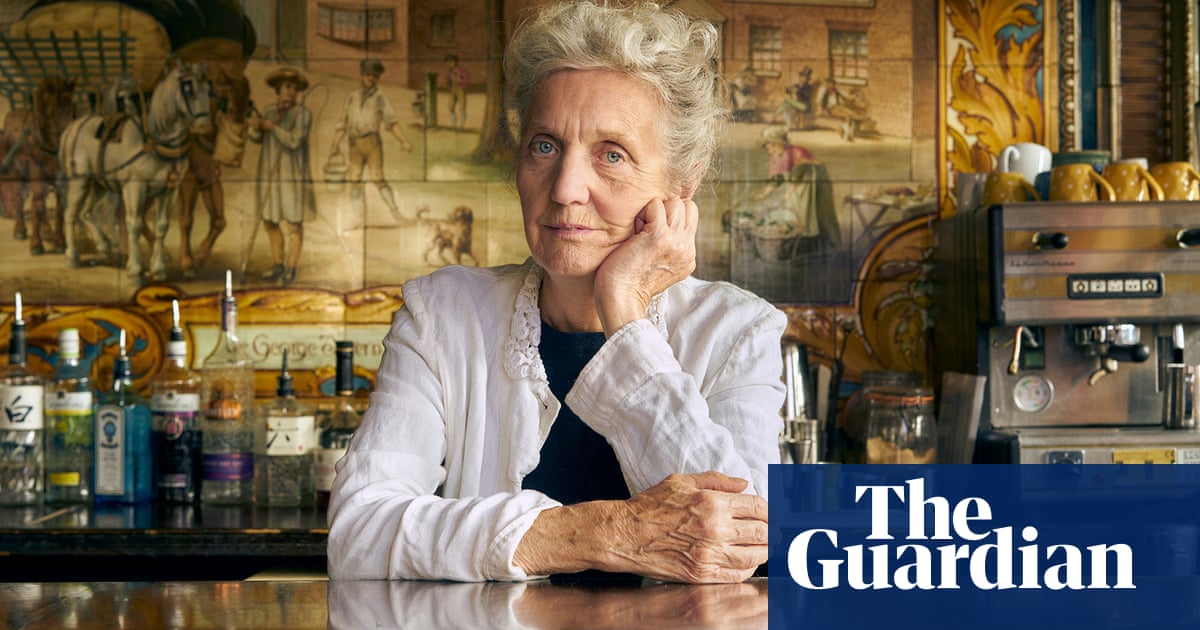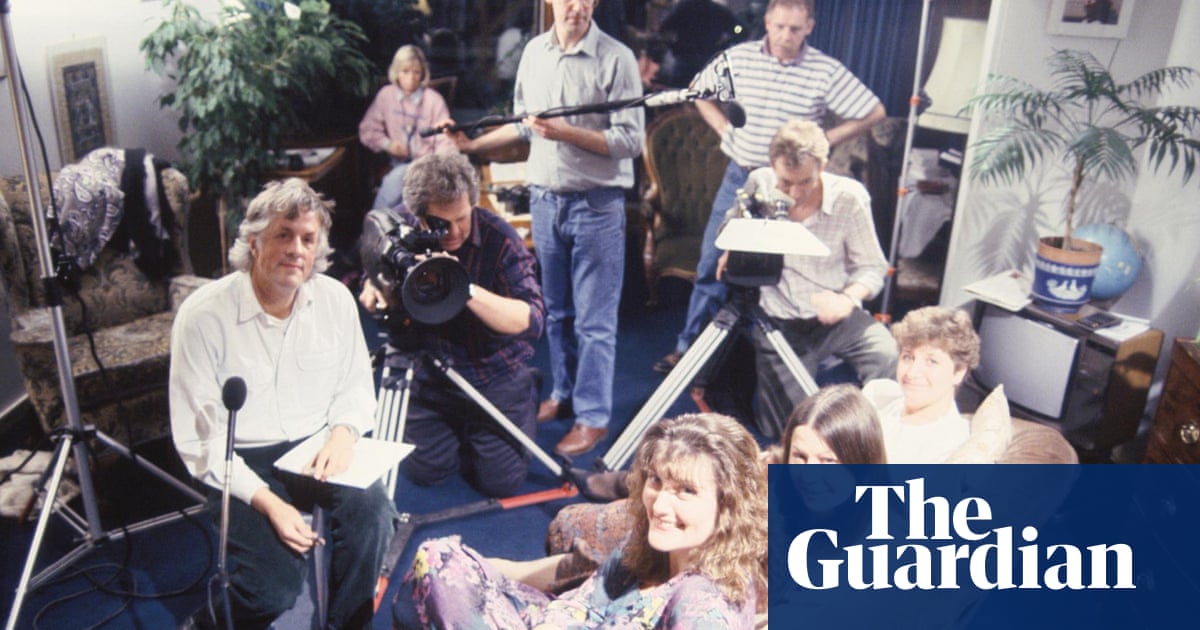
usic writer Pete Paphides’ recent memoir, Broken Greek, contains a vivid description of its seven-year-old author encountering the Stranglers for the first time, during a 1977 Top of the Pops appearance. “They landed in the living room while I was totally unsupervised,” he writes, “and scared the shit [out] of me. By now I would have seen images of punk rockers … but they looked like circus entertainers compared to [the Stranglers]. They looked too old to be punk. They looked like the sort of people you pass in the street and your mother puts her arm round you, stares at the pavement and doubles her walking speed … The point at which it all got too much was when the camera cut to Dave Greenfield – who has died from Covid-19 aged 71 – jabbing his keyboard while looking straight ahead with what seemed, beyond doubt, to be the eyes of a murderer, an effect somehow compounded by the army-surplus boiler suit he had decided to wear. Just like that, my list of phobias had got a little longer: worms, biting into mushrooms, insects, the fibreglass King Kong which stood next to a ring road in Birmingham city centre and, now, Dave Greenfield from the Stranglers.”
It’s funny writing, but it’s also very incisive about the Stranglers: in real life Greenfield was, by all accounts, the band’s most approachable and charming member, but otherwise Paphides has it spot-on. The Stranglers complained relentlessly about not being accepted by the punk cognoscenti, but what did they expect? They didn’t look like punks, particularly Greenfield, who defiantly sported that least punk of facial accoutrements, a moustache. They were old, at least by the standards of the day, old enough to have the kind of musical pasts it was wise to keep your mouth shut about in the scorched-earth environment created by the Sex Pistols: Hugh Cornwell had played bass in a band with Richard Thompson, later of Fairport Convention; Greenfield had been in a prog rock band called Rusty Butler.
Worse, Greenfield declined to keep his mouth shut about his past, at least metaphorically speaking. He played keyboards, sometimes several at once: nothing compared to the banks of equipment behind which Rick Wakeman plied his trade, but far more than most punk bands would countenance. Sometimes his playing recalled the reedy organ sounds found on 60s garage rock singles by ? and the Mysterians or the Standells, which was just about acceptable under punk rules. More often, he played exactly like someone who’d been in a prog rock band, decorating songs with complex arpeggios, which absolutely wasn’t. Moreover, his playing was the Stranglers’ signature sound: with the greatest of respect to Hugh Cornwell’s gruff vocals, or Jean-Jacques Burnel’s fluid bass playing, when you think of the Stranglers’ most famous songs – from Peaches and No More Heroes to Waltzinblack and Golden Brown – you think first of Greenfield’s keyboards.
His contributions were the solitary aspect of the Stranglers’ music you might describe as beautiful. Everything else about them was as relentlessly, wilfully nasty as their song titles suggested: Ugly, Tits, Bring on the Nubiles, Nice N’ Sleazy, Peasant in the Big Shitty, Down in the Sewer and – oh God – I Feel Like a Wog. If it makes for profoundly uncomfortable listening now – “problematic” barely begins to cover the lyrical content – their music had a remarkable power, a sense of unceasing, misanthropic hostility. But they sounded less like a punk band than a band that predated punk, that sprang out of that weird, liminal period immediately prior to 1976, where the bleakness of mid-70s Britain had seeped into rock’s fringes – the tougher end of the pub-rock scene, the more thuggish bits of late-period glam – but not yet become codified into series of musical diktats. Which is precisely what they were: they had formed in 1974 as the Guildford Stranglers, Greenfield joining a year later.
It meant that the Stranglers were always regarded with suspicion by the music press – a state of affairs not helped much by the band’s propensity for violence – but it also meant that the Stranglers weren’t constrained by punk. Grimly powerful as their debut album Rattus Norvegicus and its follow-up No More Heroes were, there’s a compelling argument that the band really hit their stride on 1978’s Black and White, by which time Greenfield’s keyboard playing had become more expansive and experimental. It’s never really hailed as such, but Black and White has a claim to be the first post-punk album: the taut dance rhythms, jagged guitars and synthesiser tones of Enough Time and Threatened, the attempt to meld dub reggae with Captain Beefheart on In the Shadows, the claustrophobic racket of Curfew and the stabbing, angular, curiously homoerotic Death and Night and Blood (Yukio) were all adventurous explorations beyond stripped-down rock’n’roll.
On the best of their subsequent singles, Greenfield seemed ever-more integral: their extraordinary cover of Walk On By – on which the Stranglers somehow contrived to turn Dionne Warwick’s exquisite original into six minutes of brooding, barely contained aggression – was dominated by his organ playing; his rolling piano underpinned Don’t Bring Harry, an authentically chilling song about heroin; on 1979’s fantastic Duchess, his arpeggios are no longer a striking embellishment, but appeared to have consumed the band’s sound entirely. And then there was Golden Brown, which seemed astonishing at the time – a Stranglers single that got played on Radio 2! – and seems more astonishing still in retrospect: a harpsichord-led song about heroin in a strange time signature that went to No 2 in the charts. The lyrics were frontman Hugh Cornwell’s, but it was Greenfield’s show: he wrote the music with drummer Jet Black, his performance is the song’s heart.
They were adaptable enough to keep having hits long after most of their peers had split up or faded away, but a certain sense of diminishing returns eventually set in: by the time of 1990’s 10, they sounded perilously close to being Another Rock Band, not an accusation even their loudest detractors could have pinned on the authors of No More Heroes or the deranged concept album The Gospel According to the Meninblack.
Yet the Stranglers proved to be weirdly unstoppable – neither the departure of Cornwell nor the retirement of Jet Black, aged 78, really dented their live following. That might have been the flipside of the Stranglers’ lack of critical acclaim or latterday reappraisal, and the kind of refusal to play by the era’s rules that Greenfield seemed to embody: never fashionable to start off with, they weren’t subject to fashion’s vagaries, instead building a huge, devoted cult following born out of being outsiders.












